Opening the discussion session, Mr. Nguyen Phu Hung, Director of the Department of Science, Technology and Technology, Ministry of Science and Technology, emphasized that core technologies play a role in ensuring security, creating breakthroughs in economic development, and enhancing national prestige and position. If Vietnam does not master strategic technologies, it will face the risk of having difficulty competing and ensuring independent development.
Mr. Nguyen Phu Hung said that the Politburo has issued Resolution No. 57-NQ/TW on the development of science, technology and innovation until 2035, with a vision to 2045, clearly affirming the position and role of science, technology and innovation in national development. For the first time, the concept of "strategic technology" has been defined and institutionalized in the Law on Science, Technology and Innovation.
On that basis, the Prime Minister issued Decision No. 1131/QD-TTg dated June 30, 2025 approving the List of 11 strategic technology groups with 35 priority products. This is not simply a list, but in fact "big problems" for the scientific community, businesses and the Vietnamese market to participate in solving.
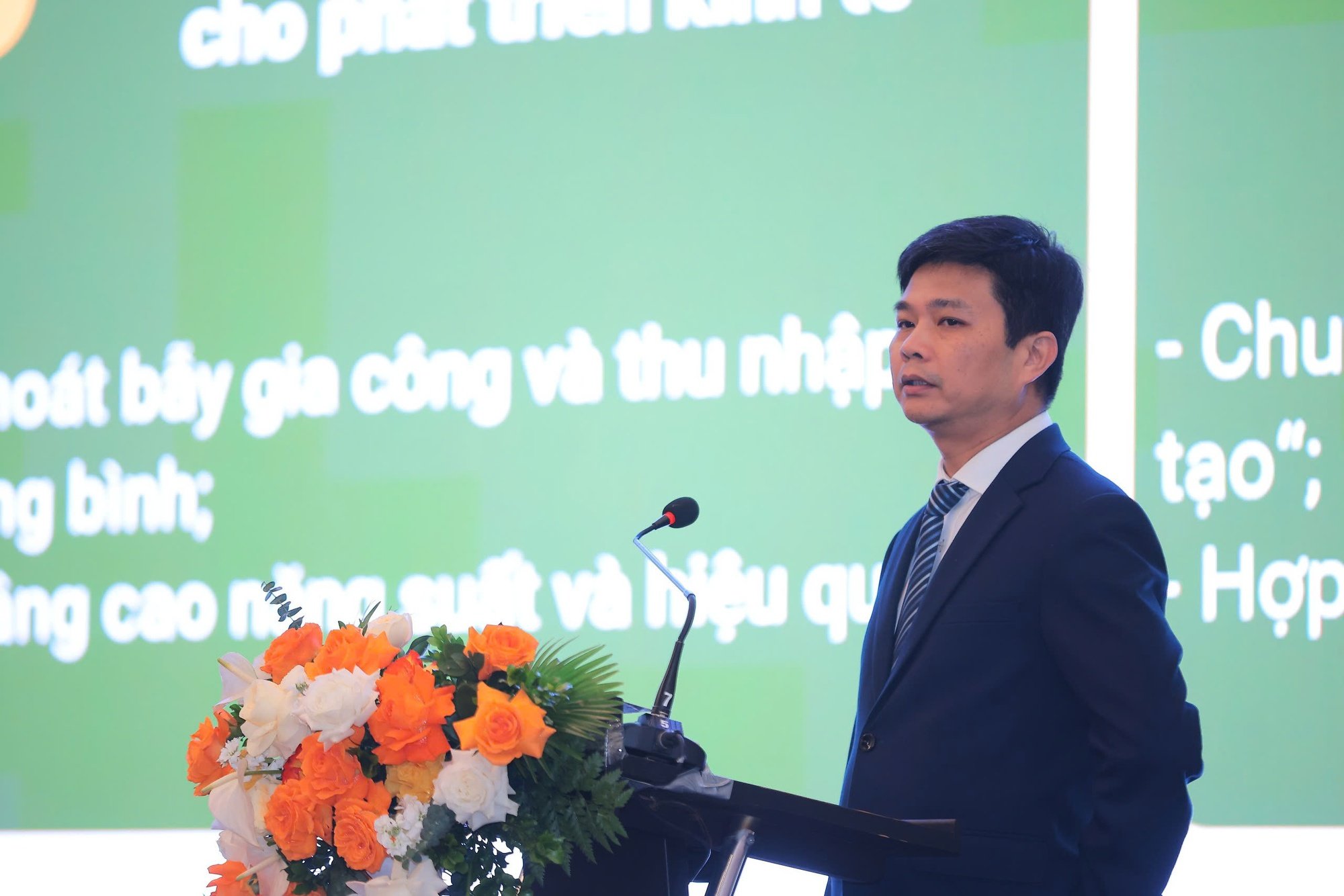
Mr. Nguyen Phu Hung, Director of Science, Technology and Engineering Department spoke at the Discussion Session.
The Ministry of Science and Technology submitted to the Government a list of 6 strategic technologies to be prioritized for early deployment for economic development, including: 5G mobile network equipment with ORAN standard, large language model and Vietnamese virtual assistant, autonomous mobile robot, blockchain platform for traceability, unmanned aerial vehicles (UAVs) and AI camera processing at the edge.
According to the roadmap announced by the Ministry of Science and Technology, by 2025, Vietnam will master 3 strategic technology products; by 2027, the target is to expand to at least 20 products and by 2035, 25 more products, moving towards developing strategic technology industries that contribute 15-20% of GDP.
"Strategic technology development must start with products, and products must be linked to businesses. Businesses know what the market needs, and the State will create institutions, research infrastructure and test markets," Mr. Nguyen Phu Hung added.
To achieve this goal, the Ministry of Science and Technology will take businesses as the center, problems as the driving force, talent as the key, and the ecosystem as the strength. "Only businesses know what the market needs, thereby turning technology into products and creating value. We will assign businesses to make products and solve major national problems," he said.
Accordingly, enterprises will play a key role in product development, while institutes and schools provide research platforms, and the State creates a legal corridor and supports infrastructure. An important highlight is the policy of attracting and utilizing global talent through solving large, widespread problems. In addition, the new law also opens up a mechanism for scientists to benefit from research results, encouraging them to persistently pursue the final product.
From a business perspective, Mr. Nguyen Dat, Deputy General Director of Viettel, believes that in the digital economic era, any country that grasps and masters technology will rise strongly and affirm its position in the international arena.
Viettel has gone through a journey of more than 10 years overcoming barriers in research, invention, copyright and human resources, with the philosophy: Set high goals, breakthrough methods, master design and system integration, and move towards core technology. The research and development process goes through three stages: Reception - mastery - creation.
According to Mr. Nguyen Dat, Viettel has gone one step ahead by persistently setting high goals, choosing a breakthrough approach, self-designing - self-integrating - self-mastering technology instead of depending on transfer. From defense industry research, Viettel has developed many high-tech products such as 4G/5G telecommunications infrastructure, digital platforms serving national digital transformation, aerospace equipment, and has now initially exported to India, UAE, and the Philippines. To continue to make a breakthrough, Viettel has established a Strategic Technology Research Center, gathering more than 3,000 employees directly involved in researching and manufacturing high-tech products, while implementing a program to attract international experts.
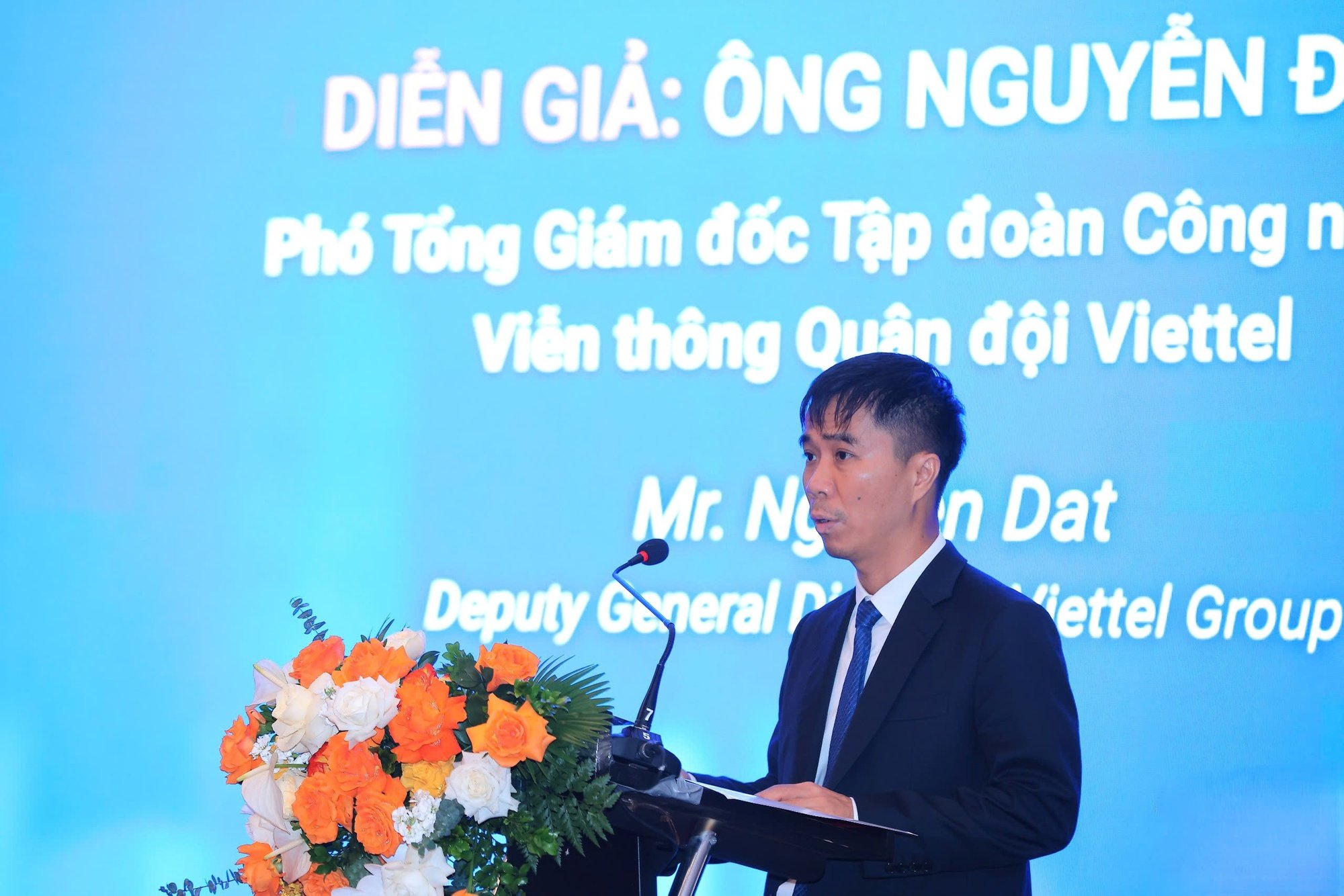
Mr. Nguyen Dat, Deputy General Director of Viettel presented a speech at the Forum.
From practice, Viettel recommends that the State should expand the spending scope of the strategic technology investment fund, supporting product output; build specialized industrial zones for industries such as semiconductors and aviation; issue a new set of localization criteria that emphasizes research and design capacity instead of just calculating the proportion of components; and at the same time establish a regional-scale strategic technology research institute linking institutes, schools and businesses.
According to Mr. Nguyen Dat, with the determination of businesses, if there are appropriate support policies, Vietnam can completely form strategic technology industries, rising to compete with large corporations in the world.
Prof. Dr. Le Anh Tuan, Chairman of the Council of Hanoi University of Science and Technology, said that no single entity can shoulder the entire innovation chain on its own, so it is necessary to form a close, multi-dimensional and flexible cooperation model.
Citing international experience, Prof. Dr. Le Anh Tuan analyzed the Korean model, where the Government plays a leading role in investing in national security programs, building technology parks and supporting large corporations such as Samsung and LG to cooperate with universities and research institutes to develop new products. Universities in Korea such as Pohang, KAIST and SKKU are all invested by corporations with tens to hundreds of millions of USD each year to build research centers, grant scholarships and cooperate in technology development. The combination of State and business resources has made Korea one of the world's leading countries in high technology, with the R&D/GDP ratio always in the top group.
He also mentioned the Canadian model, where the Government plays a coordinating role, focusing on internship programs and human resource training through university-business cooperation. This approach helps students improve practical skills while linking research with market needs.
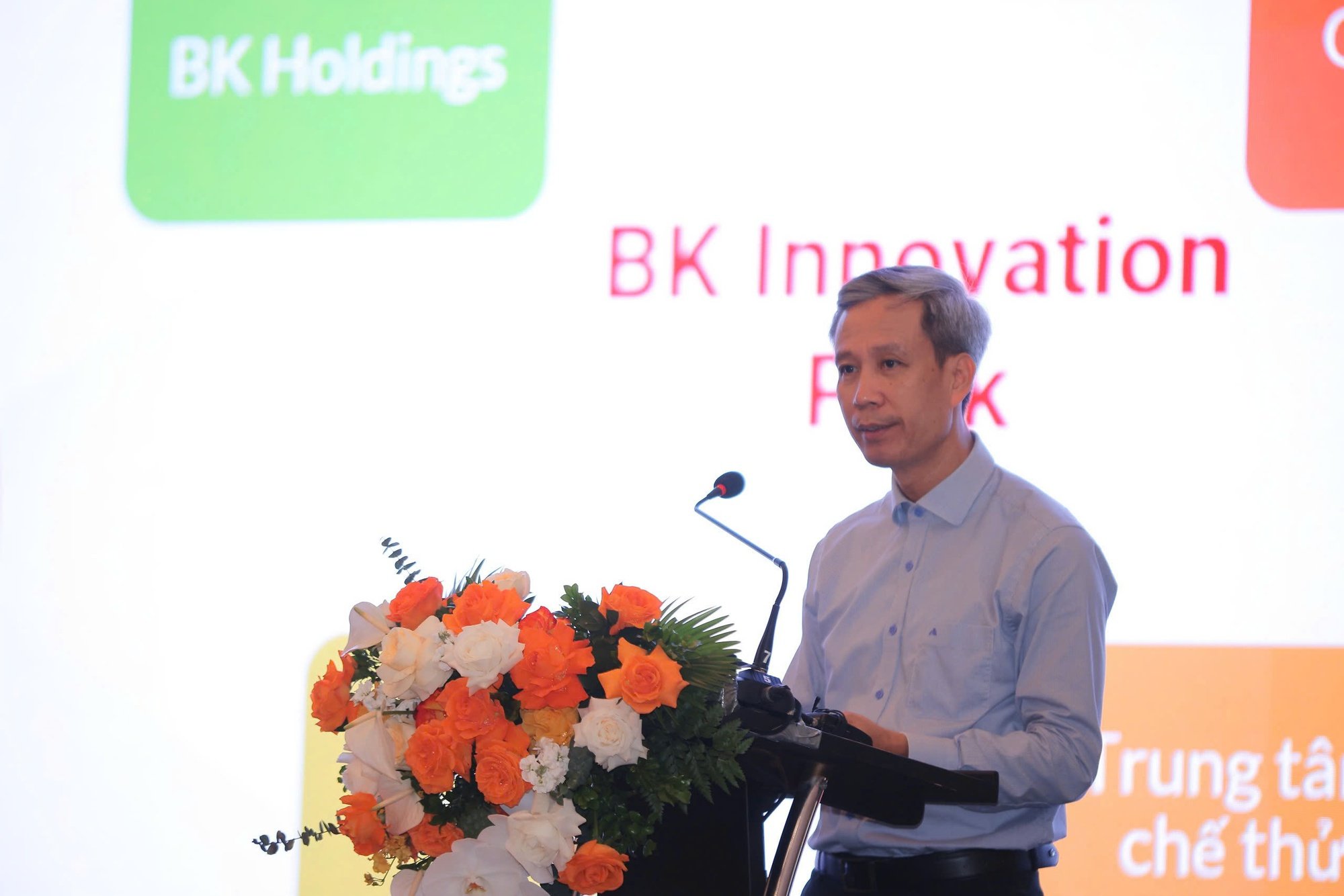
Prof. Dr. Le Anh Tuan speaks at the Discussion Session.
According to Prof. Dr. Le Anh Tuan, Vietnam is more suitable for the Korean model: the State creates policies, invests in infrastructure and orders technology; institutes and schools create new knowledge, train high-quality human resources and develop technology; businesses lead the market and commercialize products. He emphasized that scientific research is only truly valuable when it is commercialized and applied to life, so linking the three becomes an important key to developing strategic technology in the context of the 4.0 industrial revolution.
The discussion session affirmed that mastering strategic technology is not only a scientific goal, but also a vital requirement for the nation in the context of global competition. With the strong orientation of the Party and the State, along with the spirit of innovation from businesses and the intelligence of scientists, Vietnam is gradually creating a solid foundation for independent, sustainable and prosperous development.
Source: https://mst.gov.vn/lam-chu-cong-nghe-chien-luoc-nen-tang-cho-phat-trien-ben-vung-197250829220611166.htm




![[Photo] Cat Ba - Green island paradise](/_next/image?url=https%3A%2F%2Fvphoto.vietnam.vn%2Fthumb%2F1200x675%2Fvietnam%2Fresource%2FIMAGE%2F2025%2F12%2F04%2F1764821844074_ndo_br_1-dcbthienduongxanh638-jpg.webp&w=3840&q=75)




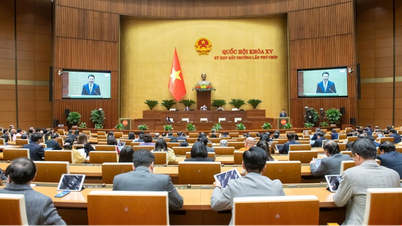



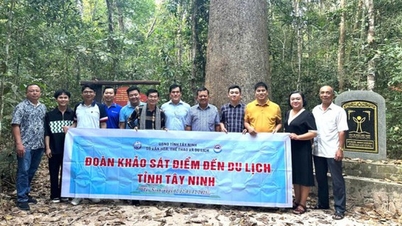

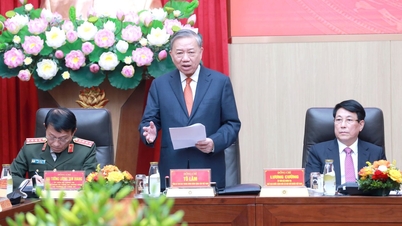

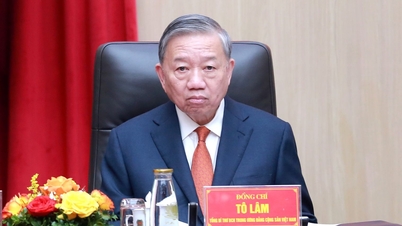






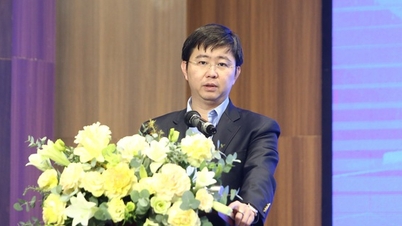
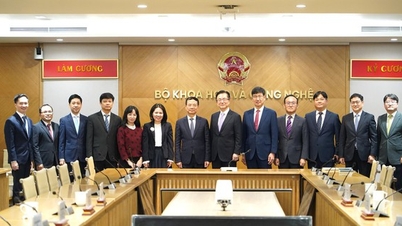
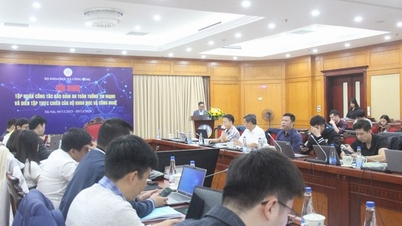
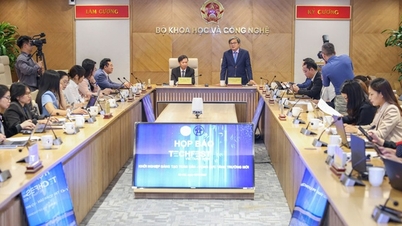
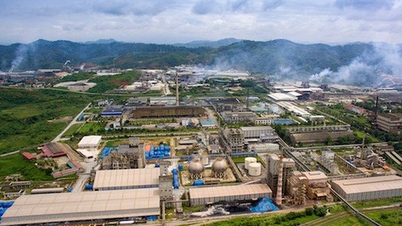


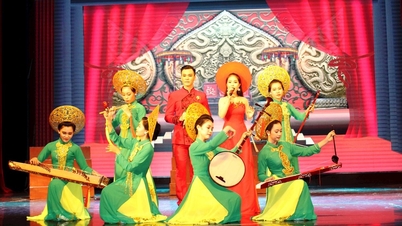

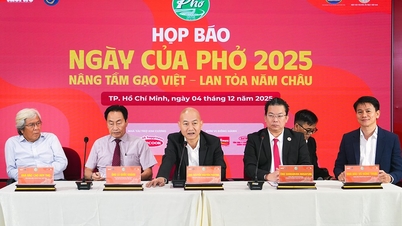



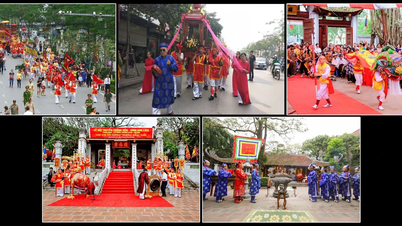

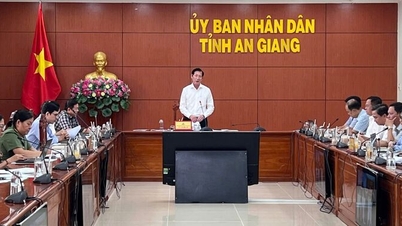














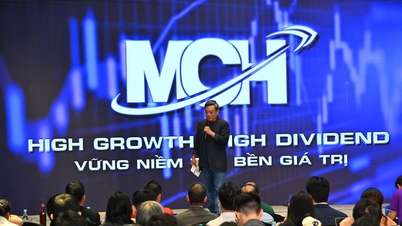


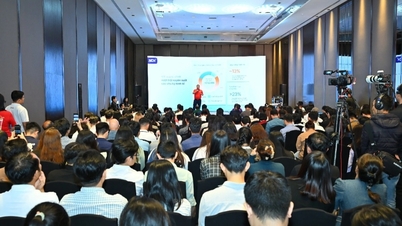

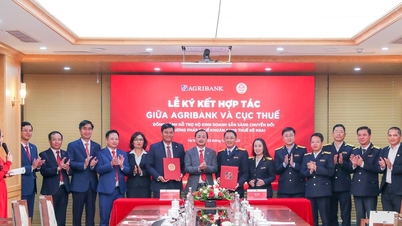












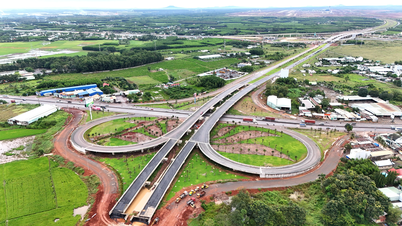



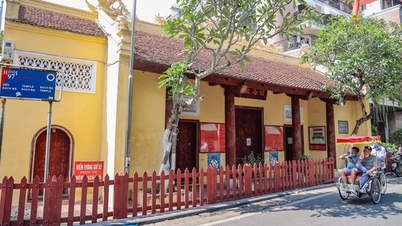


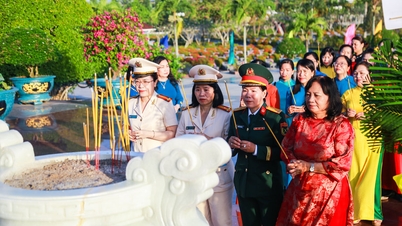

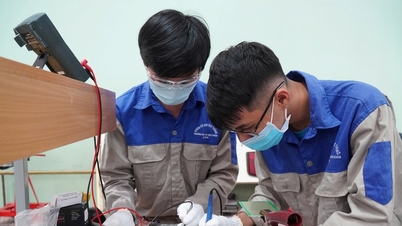



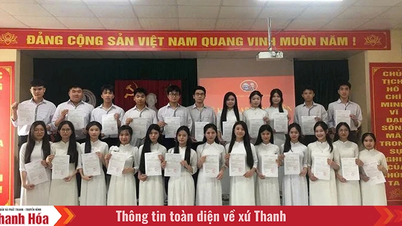















Comment (0)